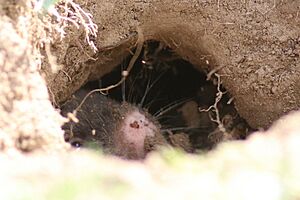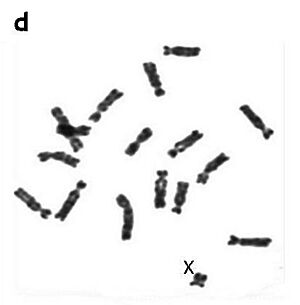Transcaucasian mole vole facts for kids
Quick facts for kids Transcaucasian mole vole |
|
|---|---|
 |
|
| Conservation status | |
| Scientific classification |
|
| Kingdom: | Animalia |
| Phylum: | Chordata |
| Class: | Mammalia |
| Order: | Rodentia |
| Family: | Cricetidae |
| Subfamily: | Arvicolinae |
| Genus: | Bramus |
| Species: |
B. lutescens
|
| Binomial name | |
| Bramus lutescens (Thomas, 1897)
|
|
| Script error: The function "autoWithCaption" does not exist. | |
Script error: No such module "Check for conflicting parameters".
The Transcaucasian mole vole (Bramus lutescens) is a small rodent that belongs to the Cricetidae family. It's a type of vole, which is like a small mouse or hamster. You can find these interesting animals in countries like Armenia, Azerbaijan, Georgia, Iran, and Turkey.
How Transcaucasian Mole Voles Have Babies
Transcaucasian mole voles have their babies during the warmer months, from April to October. They usually start breeding in March or April and again in October or November. After the female gets pregnant, she carries her babies for about 26 days, which is almost a month.
Once the baby voles, called pups, are born, they stay with their mother for about two months. For the first month, the pups mostly just feed on their mother's milk. During this time, they also start to develop their body movements and learn how to move around.
By the fifth week, the pups are ready to be weaned off milk. This means they can start eating solid foods like vegetables all by themselves. They also become strong enough to walk around without any trouble.
Unique Chromosomes of the Mole Vole
Inside every living thing's cells are tiny structures called chromosomes. They carry all the instructions that make an animal what it is. Scientists study these chromosomes to learn more about different species.
The Transcaucasian mole vole has a very unusual number of chromosomes. Most animals have an even number, but this vole has only 17 chromosomes. This is called a low, odd, diploid number.
What's even more surprising is how their sex is determined. In many animals, including humans, males have a Y chromosome and a special gene called SRY. Females usually have two X chromosomes. But Transcaucasian mole voles are different.
Both male and female Transcaucasian mole voles have an XO sex chromosome set. This means they only have one X chromosome and no Y chromosome. They also don't have the SRY gene. Scientists are still trying to figure out exactly how their sex is decided without these common genetic parts.
See also
- Zaisan mole vole
- Tokudaia osimensis
- Tokudaia tokunoshimensis
 | Selma Burke |
 | Pauline Powell Burns |
 | Frederick J. Brown |
 | Robert Blackburn |



